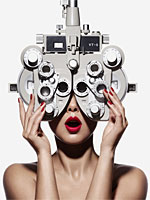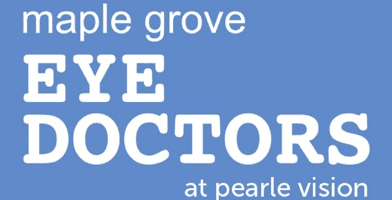We never appreciate how much our eyes do for us — from helping to navigate the world to letting us ogle George Clooney — until something goes wrong. In fact, they’re more sensitive than you think: Your eyes are affected by everything from makeup to air-conditioning to all those birthdays. Here’s how to take care of them so you can keep seeing the sights.
‘My eyes are always itchy this time of year’
Seasonal allergies can make your eyes itch like crazy, thanks to the histamine they (and other body parts) produce in response to pollen and other irritants.
How to see clearly: Staying indoors with the windows shut is ideal, but we know you can’t be a total recluse. So use over-the-counter allergy eyedrops such as Naphcon-A, or ask your doc to prescribe a more potent one such as Pataday, says Anne Sumers, MD, a clinical correspondent for the American Academy of Ophthalmology. And shower before bed so pollen’s not lingering on your face and in your hair all night long.
‘Why are my lids pink and puffy?’
If one or both of your eyelids are inflamed, itchy, and red, you may have blepharitis, which occurs when bacteria or excessive oil from your eyes coats the lid near the eyelash line. It can also be caused by allergies. “Blepharitis, which is not contagious and usually doesn’t require antibiotics, often gets mistaken for pink eye, which is usually caused by a virus and is highly infectious,” Dr. Sumers says. Check in with an eye doctor to figure out which one you’ve got. A pink eyelid can also mean you have a sty, a bacterial infection on your lid that takes the form of a painful, pus-filled pimple.
How to see clearly: Prevent and treat both styes and blepharitis by keeping the eye clean. Soak a washcloth with warm water, wring it out, and place it over your closed eye for a minute or two. Do this two or three times a day. “Clean all your eye makeup off every night,” Dr. Sumers adds, “and never wear eyeliner inside your lash line.” And no matter how tempted you are, don’t pop a sty, or you could spread the infection.
‘My eyes are burning!’
If you feel a gritty, scratchy, or even stabbing pain in your eyes, you may be one of the 10 million Americans suffering from dry eye syndrome. Blame modern life: Air-conditioning and central heating can leave eyparched, says Stephanie Marioneaux, MD, an ophthalmologist in Chesapeake, Virginia. Plus, studies have shown that when we stare at a screen, we don’t blink as often, so our eyes lose their natural lubrication. If you wear contact lenses, you’re more prone; same goes if you smoke or take medications such as antihistamines or decongestants.
How to see clearly: Try artificial tears. “Gels that are labeled ‘for severe dry eye,’ such as Systane, are thicker and last longer, but they can feel gummy and blur vision,” Dr. Sumers says. “Drops that are labeled ‘mild to moderate,’ such as Refresh, are thinner and feel better, but won’t last as long.”
If drops don’t do the trick, your doctor can prescribe a topical medication or fit you with punctal plugs (they’re inserted into your eye to keep tears from draining too quickly). Use a vaporizer or humidifier to keep indoor air moist, too. Surprisingly, eating fish high in omega-3 fatty acids—such as salmon, sardines, and tuna—may reduce your risk of dry eye, and taking flaxseed oil and omega-3 supplements may relieve symptoms, studies suggest. And every 10 minutes or so, look away from your computer or tablet screen and bat your lids like Scarlett O’Hara.
‘Menus are suddenly hard to read’
No matter how great your vision’s been, it’s nearly inevitable that you’ll have more trouble seeing things close up as you reach your 40s. The lens in your eye gets harder and less flexible over time, gradually losing the ability to focus, Dr. Marioneaux explains. The retina also becomes less light-sensitive, so it’s harder to see in dim light.
How to see clearly: Squinting as you read? Pick up a pair of plus-1 glasses at the drugstore. (Wearing glasses won’t make your sight worse — that’s just a myth, Dr. Sumers says.)
If you already have glasses or contacts for distance and don’t want to switch between two pairs, go for old-fashioned bifocals (or newer bifocal contact lenses), trifocals (which have a third zone in the middle for computer-distance vision), or progressive lenses (which blend the edges so you can see everything from a movie screen to a medicine label without as much distortion). Another option is monovision, in which your dominant eye is corrected (with contacts or surgery) for distance, and your other eye is corrected for close-up vision.
Let your gadgets work for you, too: Increase the font size on your e-reader, for instance, or try apps such as MagLight, which turns your smartphone into a light-up magnifying glass.
‘I keep seeing spots’
Little dots and squiggly lines, called “floaters,” come into your field of vision when the vitreous humor—a gel-like part of the eye—begins to shrink, causing cells and fibers to clump and cast shadows onto your retina. In most cases, they’re harmless, but if a whole bunch appear suddenly, or if they’re accompanied by persistent flashing lights or peripheral-vision loss, see your eye doctor ASAP—both could be signs of a retinal tear or detachment.
How to see clearly: If you’ve got a retinal detachment, or the floaters are so bad they’re impairing your vision, you’ll need surgery. Otherwise, most folks just learn to live with them, and even ignore them.



